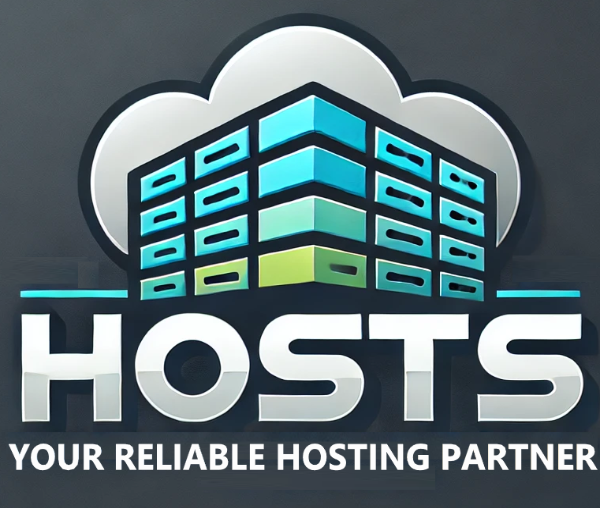- Pricing: Compare pricing plans and features to find a hosting solution that fits your budget.
- Control Panel: Consider the ease of use of the control panel to manage your website effectively.
- Additional Features: Look for additional features like email hosting, domain registration, and website builders that may be valuable to you.
By carefully evaluating these factors, you can choose the best web hosting service for your website’s needs and ensure its long-term success.
Choosing the right web hosting provider can make or break your website’s success. Whether you’re launching a blog, building an e-commerce site, or managing a business platform, the hosting provider you select will play a crucial role in your site’s performance, security, and scalability. In this review, we’ll delve into the top five web hosting providers—HostGator, SiteGround, Namecheap, DreamHost, and Bluehost—each offering unique strengths tailored to different user needs.
1. HostGator
InterServer is a web hosting provider that was co-founded in 1999 by Mike Lavrik and John Quaglieri. They started with a vision to offer data services at affordable prices while maintaining high service and support levels.
Here’s what I know about InterServer, based on the information provided:
Core Principles:
- Quality: They are committed to delivering high-quality services.
- Service: Customer service is a key focus.
- Support: They offer around-the-clock customer support with live representatives available 24/7.
Product Offerings: InterServer has evolved its product line over the years to include:
- Shared Hosting
- Cloud Hosting
- Quick Servers
- Dedicated Servers
- Colocation Services
Customer Base: They cater to a wide range of customers, from individual freelancers to Fortune 500 companies, both domestically and internationally.

Key Features:
- Reliability: 99.9% uptime guarantee.
- Affordability: Competitive pricing with frequent discounts.
- Scalability: Easy upgrade options as your site grows.
Pros:
- Affordable for beginners.
- Reliable uptime.
- User-friendly interface.
Cons:
- Occasional upselling of services.
- Customer support can be slow at times.
Customer Feedback: Users appreciate HostGator’s affordability and reliability, especially for small-scale websites. However, some users note that customer support can be hit or miss.
2. InterServer
InterServer is a web hosting provider that was co-founded in 1999 by Mike Lavrik and John Quaglieri. They started with a vision to offer data services at affordable prices while maintaining high service and support levels.

Core Principles:
- Quality: They are committed to delivering high-quality services.
- Service: Customer service is a key focus.
- Support: They offer around-the-clock customer support with live representatives available 24/7.
InterServer Pros:
- Affordable Pricing with Price Lock Guarantee: This is a major selling point. InterServer often offers very competitive initial prices that are locked in for renewals, preventing the common industry practice of drastic price hikes after the first term.
- Feature-Rich Shared Hosting: Their shared hosting plans often come with “unlimited” resources like storage, bandwidth, and email accounts, making them attractive for small businesses and personal websites.
- Strong Uptime and Reliability: Many reviews and their own claims point to excellent uptime (often 99.9% or higher) due to redundant power systems, quality hardware, and proactive monitoring.
- Good Performance (Speed): InterServer is generally praised for decent to good loading times and server response, especially for their price point. They aim to avoid overloading servers by only utilizing 50% of capacity.
- Free Website Migration: They often offer free and seamless website migrations, which is a great help for those moving from another host.
- Solid Security Features: This includes free SSL certificates (Let’s Encrypt), advanced DDoS protection, firewalls, and malware scanners.
- 24/7 Customer Support (Live Representatives): They advertise around-the-clock support via live chat, email, and phone with live representatives.
- Customizable VPS Hosting: Their VPS plans offer a lot of control over the operating system, RAM, and CPU, allowing users to tailor resources to their specific needs without unnecessary “bloatware.”
- Owns and Operates Data Centers: This gives them more control over their infrastructure and can contribute to reliability.
- Longevity and Experience: Being in business since 1999, they have a long track record.
InterServer Cons:
- Limited Data Center Locations: Primarily located in the U.S. (New Jersey and Los Angeles), which might result in higher latency for users outside North America.
- No Free Domain Name: Unlike many other hosts, InterServer typically does not include a free domain registration with their hosting plans.
- Inconsistent Customer Support Quality/Response Times: While 24/7 support is available, some users report that response times can be slow during peak periods, and the quality of support (knowledge, helpfulness) can be inconsistent, occasionally relying on scripted responses or lacking in-depth technical assistance.
- Dated User Interface/Dashboard: Some users find their account interface and dashboard to be less modern and intuitive compared to some competitors, with some features being hard to find.
- “Unlimited” Resources Have Limits: While advertised as unlimited, shared hosting resources typically have fair usage policies or specific limits (e.g., 20% server resources, 250,000 inodes) that can be triggered, especially for larger or more resource-intensive sites.
- Weekly Backups Only (Standard): While they offer weekly automated backups, more frequent backups are often recommended for critical sites, and users might need to perform manual backups or use third-party solutions for daily protection.
- cPanel Can Cost Extra: For some of their lower-tier plans, cPanel might require an additional payment, though DirectAdmin is often a free alternative.
- VPS Learning Curve: While customizable, their VPS offerings may have a steeper learning curve for beginners or non-technical users as they require more manual setup and configuration.
In summary: InterServer is often a strong choice for budget-conscious users and those who appreciate consistent pricing. Their shared hosting is generally reliable and feature-rich. However, if you require a free domain, prefer a super-modern interface, or need consistently fast and highly technical customer support for complex issues, you might consider other options.
Key Features and Differentiators mentioned in reviews:
- Affordable pricing with low renewal rates: They aim for no surprise pricing, meaning the price you pay today is what you’ll pay forever, with no renewal hikes.
- Free website migration: Often with no downtime.
- Reliable 99.9% uptime: For consistent performance.
- Strong security: Including advanced DDoS protection and free SSL certificates.
- User-friendly control panels: Such as cPanel and DirectAdmin.
- Owns and operates data centers: Primarily located in Secaucus, NJ, and also in Los Angeles, CA.
- Unlimited features on shared plans: Often including unlimited storage, data transfer, and email accounts.
- Focus on not overloading servers: They utilize only 50% of server capacity to support customer growth without performance issues.
- Support for various platforms: Including Linux, Windows, and even Macintosh.
3. Namecheap
Overview: Namecheap offers competitive pricing and a wide range of hosting services, from shared hosting to VPS and dedicated servers. It’s an excellent option for those looking for affordable hosting without compromising on quality.

Key Features:
- Affordability: Low-cost plans with a variety of features.
- Domain Services: Offers domain registration and hosting in one place.
- Ease of Use: User-friendly interface with easy setup.
Pros:
- Budget-friendly pricing.
- Free domain name with hosting.
- 24/7 support.
Cons:
- Performance can be inconsistent.
- Limited features on the most basic plans.
Customer Feedback: Users find Namecheap to be a cost-effective solution, especially for smaller websites and personal projects. Some users have noted occasional performance issues, particularly on lower-tier plans.
4. DreamHost
Overview: DreamHost is a reliable and feature-rich hosting provider, suitable for both individuals and businesses. It offers shared hosting, VPS, dedicated servers, and managed WordPress hosting, with a focus on privacy and security.

Key Features:
- Privacy: Free domain privacy and strong security features.
- Flexibility: Wide range of hosting options to suit different needs.
- Commitment-Free: 97-day money-back guarantee.
Pros:
- Excellent privacy protection.
- No commitment with a lengthy money-back guarantee.
- Comprehensive feature set.
Cons:
- No cPanel, which may require a learning curve.
- Higher renewal rates.
Customer Feedback: DreamHost is praised for its robust features and privacy protections, but some users find the lack of cPanel to be a drawback, particularly if they are used to it.
5. Bluehost
Overview: Bluehost is a popular choice among bloggers and small businesses due to its user-friendly approach and strong integration with WordPress. It offers shared hosting, VPS, dedicated hosting, and managed WordPress hosting.

Key Features:
- WordPress Integration: Officially recommended by WordPress.
- Ease of Use: Simple setup and management for beginners.
- Comprehensive Package: Includes a free domain, SSL certificate, and 24/7 support.
Pros:
- Seamless WordPress integration.
- Beginner-friendly.
- Competitive pricing.
Cons:
- Upselling during the sign-up process.
- Higher renewal costs.
Customer Feedback: Bluehost receives high marks for its ease of use and seamless WordPress integration, making it a top choice for beginners. However, the upselling tactics and renewal prices can be off-putting for some.
Conclusion
Each of these web hosting providers has its own strengths, catering to different needs and budgets. HostGator and Namecheap are excellent for those on a budget, SiteGround offers superior performance for WordPress users, DreamHost provides robust privacy and security, and Bluehost is ideal for beginners, particularly those using WordPress. Consider your specific needs—whether it’s speed, cost, ease of use, or customer support—when making your choice.
Free Reports

